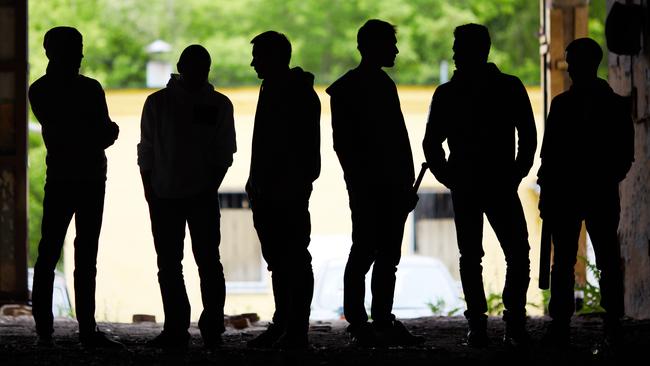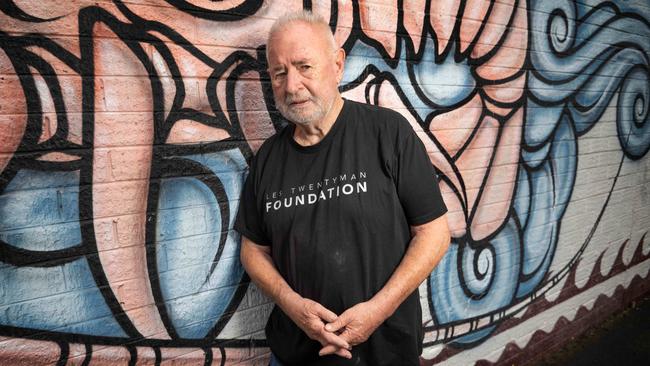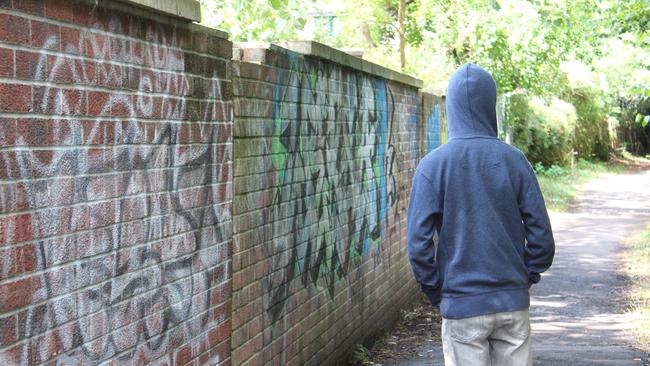Surge in young Australians joining gangs in metro cities
Aussie kids as young as 10 are turning to lives of crime by joining violent gangs. Here’s how parents can spot the signs.
SmartDaily
Don't miss out on the headlines from SmartDaily. Followed categories will be added to My News.
A lack of education and two gruelling years of the pandemic has enticed isolated young Australians to join gangs who instil purpose, camaraderie and belonging.
And this has led to a surge in reports of violent brawls, robberies and drug trafficking offences in metro cities across Australia.
Les Twentyman OAM, veteran youth worker and founder of the Les Twentyman Foundation, says Covid-19 has been tough for young people, with lockdowns creating pressure in homes, and an increase in domestic violence and people turning to drugs and alcohol.

“We have seen a growing rate of young people disassociating from school during remote learning – all these things make it easier for gangs to recruit at-risk young people,” he says. “Gangs prey on vulnerable young people, offering them a sense of protection and, at times, what can seem like a sense of family.”
This month, Melbourne police arrested 45 youth gang members as part of Operation Alliance in the city’s west and in Adelaide in January, police boosted an operation dealing with feuding youth gangs.
Australian Psychological Society president Tamara Cavenett says an involvement in gangs and crime can “lead to activities that contribute to PTSD, stress, anxiety and depression or exacerbate mental health issues.”
Here, experts provide their tips for parents to tell if their child is in a gang and what they can do about it.
FATAL ATTRACTION
Twentyman says children as young as 10 are being recruited, with a combination of children, teenagers and young adults who connect over location or cultural background.
“The reason these young people are together is because they believe nobody cares for them ... they have been cast out of society, so they have no respect for society’s rules,” he says.
“What we are looking at are kids who have become lost, disconnected from society with no sense of how they can live a positive life.

“The primary driver is vulnerability. When kids are left vulnerable and disconnected from family and society, they are most at risk of turning to anti-social behaviour.”
NSW Police Force says music, postcode or geographic location and ethnic groupings are some top factors attracting young people to gangs.
“Those who control these gangs are after dispensable people,” a NSWPF spokesman says.
“If you’re part of a gang there are only two roads: prison or likely the victim of a serious life-changing injury or death.”
Amend Maden, 23, was in his mid-teens when he became involved in youth crime.
“My father was imprisoned and my life started to become difficult ... I started using drugs heavily and I was homeless and had no money,” he says. “The only way I could support myself was crime and that involved a group of us. We would be up all night and we knew we had to do something like car theft or robbery ... to get the money we needed to live.”
Maden’s life turned around thanks to the Les Twentyman Foundation.
“I want to give back and help other kids like me to make better choices.”
Victoria Police have launched an ongoing state-wide operation on dismantling the youth gangs causing the most harm.

“As part of Operation Alliance, police are undertaking a range of enforcement activities to detect and disrupt offending, including community patrols, search warrants and bail compliance checks,” a VP spokesperson says.
“Police engage with young offenders to try and move them away from a life of crime, through reinforcing connections to family, education, employment, and community activities.
“We also intercept young people who are yet to become firmly embedded within gangs as soon as they come on our radar and divert them to support agencies.”
RED FLAGS
Skipping or failing school:
Twentyman says a key sign of gang membership is whether your child is attending school.
“Often those who are spending time with youth gangs could be cutting school, or are spending a lot of time away from home,” he says.
Changes in behaviour: Such as stopping playing sport, spending time with new friends, showing a lack of respect, displaying a hostile or defiant attitude and being secretive about activities or time away from home.
New clothing: Shirts, hoodies, hats and other clothing in matching colours or with matching logos and symbols.
Listening to different music: Pay attention to the type of music and lyrics.
Using graffiti or tags: Notes, scribbles or graffiti they are displaying (numbers such as postcodes), or abbreviations (MoB – Money over Bitches, or KVT – Kaiviti, meaning Fijian).
Acquiring money: Unexplained money or expensive possessions.
Carrying weapons: Such as knives.
Using drugs: Or consuming alcohol.
Breaking the law: Getting into trouble with the police.
WHAT CAN PARENTS DO?
Provide routine: Twentyman says it’s important to make sure your child has a solid structure and routine around them, such as school.
Communicate positive messages: “Love them, hug them and make them feel valued, and if they need support then get it for them,” Twentyman says.
Keep them in school: Twentyman says education can combat kids joining gangs and it can help implement programs that assist kids at risk of falling out of the system.
Remove isolation: Cavenett says to channel isolation into positive groups that occupy their time such as sporting clubs, music groups or volunteering. Explore interests or hobbies that might be enjoyable and beneficial with them.
Listen to them: Don’t simply provide your input. Many youth turn to gangs because they don’t think they can trust and confide in anyone else. Begin by building your relationship.
Know their friends well: Encourage your children to invite friends over. Get to know them and be a positive influence in their lives.
Set limits early: Your children need to know at an early age what is unacceptable behaviour in your home. Do not allow your children to stay out late or spend a lot of unsupervised time out in the streets. You can’t control everything, but you can be aware of where they are going and who with.
Get community help: The Les Twentyman Foundation and the PCYC offer early intervention programs, with youth workers working to get kids to make better choices and on the right path. Twentyman says the longer you leave support, the less likely it will be that you can turn that young life around. Cavenett says if you’re concerned with your child’s development, contact their school, a GP and psychologist.
Explain the consequences: Calmly discuss the long-term consequences of gang life: prison, serious injury, and even death. Back up what you say with facts. Talk about how decisions today can affect their future.
More Coverage
Originally published as Surge in young Australians joining gangs in metro cities





